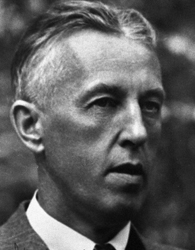A Quote by Edward Gibbon
The desire of perfection became the ruling passion of their soul; and it is well known, that while reason embraces a cold mediocrity, our passions hurry us, with rapid violence, over the space which lies between the most opposite extremes.
Related Quotes
For a long time I believed the opposite of passion was death. I was wrong. Passion and death are implicit, one in the other. Past the border of a fiery life lies the netherworld. I can trace this road, which took me through places so hot the very air burned the lungs. I did not turn back. I pressed on, and eventually passed over the border, beyond which lies a place that is wordless and cold, so cold that it, like mercury, burns a freezing blue flame.
Madness is consistent; which is more than can be said for poor reason. Whatever may be the ruling passion at the time continues equally so throughout the whole delirium, though it should last for life. Madmen are always constant in love; which no man in his senses ever was. Our passions and principles are steady in frenzy; but begin to shift and waver, as we return to reason.
It is impossible to read the history of the petty republics of Greece and Italy without feeling sensations of horror and disgust at the distractions with which they were continually agitated, and at the rapid succession of revolutions by which they were kept in a state of perpetual vibration between the extremes of tyranny and anarchy . . . great improvement . . . were either not known at all, or imperfectly known to the ancients.
The infinitesimal seedlings became a forest of trees that grew courteously, correcting the distances between themselves as they shaped themselves to the promptings of available light and moisture, tempering the climate and the temperaments of the Scots, as the driest land became moist and the wettest land became dry, seedlings finding a mean between extremes, and the trees constructing a moderate zone for themselves even into what I would have called tundra, until I understood the fact that Aristotle taught, while walking in a botanic garden, that the middle is fittest to discern the extremes.
It is one thing to be delivered from bad thoughts, and another to be freed from the passions. Often people are delivered from thoughts, when they do not have before their eyes those things which produce passion. But the passions for them remain hidden in the soul, and when the things appear again the passions are revealed. Therefore it is necessary to guard the mind when these things appear, and to know toward which things you have a passion.
The real question is whether we can learn anything from our experiences upon which we may grow and help others to grow in the likeness and image of God. We know that if we rebel against doing that which is reasonably possible for us, then we will be penalized. And we will be equally penalized if we presume in ourselves a perfection that simply is not there. Apparently, the course of relative humility and progress will have to lie somewhere between these extremes. In our slow progress away from rebellion, true perfection is doubtless several millennia away
Whoever wishes to make progress in perfection should use particular diligence in not allowing himself to be led away by his passions, which destroy with one hand the spiritual edifice which is rising by the labors of the other. But to succeed well in this, resistance should be begun while the passions are yet weak; for after they are thoroughly rooted and grown up, there is scarcely any remedy.
There is one antidote for evil passions: the purification of our souls which takes place through the mystery of godliness. The chief act of faith in this mystery is to look to Him who suffered the passion for us. The cross is the passion, so that whoever looks to it? is not harmed by the poison of desire. To look to the cross means to render one's whole life dead and crucified to the world.
Why should we desire the destruction of human passions? Take passions from human beings and what is left? The great object should be not to destroy passions, but to make them obedient to the intellect. To indulge passion to the utmost is one form of intemperance - to destroy passion is another. The reasonable gratification of passion under the domination of the intellect is true wisdom and perfect virtue.






































